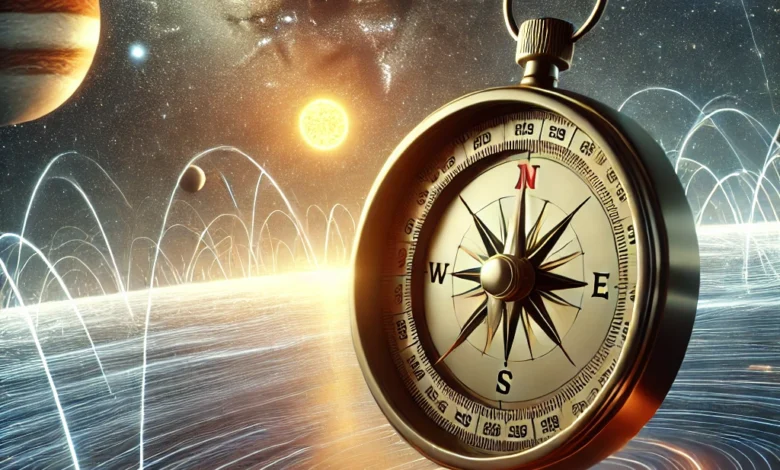Navigating the Cosmos: What Happens to a Compass in Space?

In the vast expanse of space, where there are no north, south, east, or west as we know them on Earth, an intriguing question arises: what happens if you use a compass in space? Would it point anywhere at all? Scientists are shedding light on this cosmic curiosity, and the answers are as fascinating as the universe itself.
On Earth, a compass works by aligning itself with the planet’s magnetic field, pointing toward magnetic north. But in the vacuum of space, without a clear planetary magnetic field, the rules change. According to experts at NASA, the behavior of a compass in space depends entirely on its proximity to magnetic fields generated by celestial objects like planets, stars, and even black holes.
“In deep space, far from any planetary magnetic field, a compass would essentially be useless,” explains Dr. Rachel Kim, an astrophysicist at the Jet Propulsion Laboratory. “There’s no consistent magnetic field to align with, so the needle would simply float aimlessly.”
Magnetic Fields in Space
While Earth has a robust magnetic field generated by its molten core, other celestial bodies also produce magnetic fields, though they vary in strength and nature. Jupiter, for instance, boasts the strongest magnetic field of any planet in our solar system—14 times stronger than Earth’s. If you were near Jupiter, a compass would point toward its magnetic poles. Similarly, on Mars, which has a patchy, weaker magnetic field, a compass might behave erratically.
The Sun also has an enormous magnetic influence, known as the heliosphere, which extends far beyond the solar system. However, this magnetic field is not uniform or stable like Earth’s and wouldn’t provide a consistent direction for a traditional compass.
Compasses and Spacecraft
For astronauts aboard spacecraft like the International Space Station (ISS), compasses are rendered ineffective because the station orbits outside Earth’s magnetic influence. Instead, navigation relies on gyroscopes, star trackers, and GPS when close to Earth. In deep space missions, star maps and onboard computers guide spacecraft with precision.
“The stars become our compasses in space,” says Dr. Kim. “We use their fixed positions relative to one another as reference points, much like sailors navigating the oceans before GPS.”
Could a Compass Work on the Moon or Mars?
On the Moon, where there is no global magnetic field, a compass wouldn’t point anywhere. However, small localized magnetic anomalies in lunar rocks might cause the needle to twitch. Mars presents a slightly different case. While the Red Planet lacks a global magnetic field, ancient magnetized regions in its crust could influence a compass sporadically, though not reliably.
Magnetic Fields Beyond the Solar System
Magnetic fields aren’t exclusive to planets and stars. Supermassive black holes, pulsars, and neutron stars generate incredibly strong and complex magnetic fields that dwarf anything found in our solar system. If a compass were close enough to a pulsar, it might point toward its magnetic poles—assuming the needle didn’t get destroyed by the extreme radiation and forces.
The Future of Space Navigation
While a simple compass won’t guide humanity through the stars, scientists are developing advanced magnetic-field detectors and sensors to map invisible magnetic forces in space. These tools could help future explorers understand celestial environments, navigate alien terrains, and uncover mysteries about how magnetic fields shape galaxies.
For now, though, if you find yourself floating in space with a compass in hand, don’t expect it to point the way. In the infinite silence of the cosmos, direction becomes a matter of perspective, and the stars remain our only guideposts.
“Space rewrites the rules of navigation,” Dr. Kim concludes. “A compass may be lost out there, but the universe gives us new ways to find our place among the stars.”




